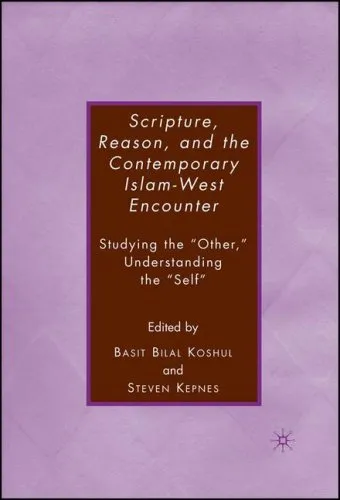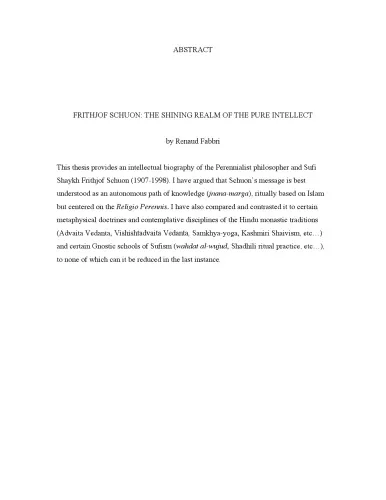Scripture, Reason, and the Contemporary Islam-West Encounter: Studying the "Other," Understanding the "Self"
4.0
Reviews from our users

You Can Ask your questions from this book's AI after Login
Each download or ask from book AI costs 2 points. To earn more free points, please visit the Points Guide Page and complete some valuable actions.Related Refrences:
Introduction
In an era of global interconnectedness, understanding between civilizations stands as a pivotal task. "Scripture, Reason, and the Contemporary Islam-West Encounter: Studying the 'Other,' Understanding the 'Self'" by Steven Kepnes and Basit Bilal Koshul sheds profound light on this imperative dialogue between Islam and the West. The book endeavors to unravel the complex web of cultural interactions through the lenses of scripture and reason, serving as a guide to both bridging and broadening our horizons.
Detailed Summary
The book brings together multidisciplinary perspectives, integrating theological, philosophical, and social insights to engage with the pragmatics of scriptural reasoning. Kepnes and Koshul delve into the historical ethos and epistemological frameworks that define Islam and Western civilization, exploring how these have influenced their evolving relationship. Grounded in the premise that understanding 'the Other' enriches the comprehension of 'the Self,' the book navigates through diverse interpretations of sacred texts and rational discourse. By fostering a dialogical understanding, it not only seeks reconciling past contentions but also aims to constructively influence future interactions.
The narrative unfolds across a series of thematic explorations, emphasizing the necessity of a cooperative ethos. It highlights the significance of scriptural reasoning as a methodological tool for cross-cultural dialogue, with discussions ranging from the interpretation of sacred texts to the role of reason in contemporary societies. The authors call upon both Islamic and Western scholars to relinquish monolithic narratives and embrace a pluralistic, dialogic approach.
Key Takeaways
- The imperative role of scriptural reasoning in fostering intercultural and interfaith dialogue.
- A nuanced understanding of each civilization's distinct yet interwoven histories and epistemologies.
- A call for adopting pluralistic perspectives to replace exclusive cultural narratives.
- Insight into how deeply held convictions can be re-evaluated to enrich the understanding of both self and other.
- The practical and theoretical dimensions of reason as bridging tools between Islam and Western thought.
Famous Quotes from the Book
"In understanding the Other, we come to understand ourselves more fully, revealing dimensions of our own culture, beliefs, and prejudices."
"Reason is not the opposite of faith, but rather a companion that illuminates it in the face of modern challenges."
Why This Book Matters
In a world often divided by cultural and religious misunderstandings, this book stands as a beacon for constructive dialogue and mutual understanding. It addresses critical questions about identity, coexistence, and knowledge exchange, framed by both historical contexts and contemporary scenarios. The insights provided by Kepnes and Koshul are invaluable for students, scholars, and practitioners involved in interfaith and intercultural studies, offering a fresh perspective for policymakers and educators alike.
By challenging entrenched stereotypes and encouraging a respectful exchange of ideas, "Scripture, Reason, and the Contemporary Islam-West Encounter" illuminates pathways towards a more harmonious global society. This book not only contributes to academic discourse but also has practical implications for fostering peace and understanding in today's fragmented world.
Free Direct Download
You Can Download this book after Login
Accessing books through legal platforms and public libraries not only supports the rights of authors and publishers but also contributes to the sustainability of reading culture. Before downloading, please take a moment to consider these options.
Find this book on other platforms:
WorldCat helps you find books in libraries worldwide.
See ratings, reviews, and discussions on Goodreads.
Find and buy rare or used books on AbeBooks.
1267
بازدید4.0
امتیاز50
نظر98%
رضایتReviews:
4.0
Based on 0 users review
"کیفیت چاپ عالی بود، خیلی راضیام"
Questions & Answers
Ask questions about this book or help others by answering
No questions yet. Be the first to ask!



